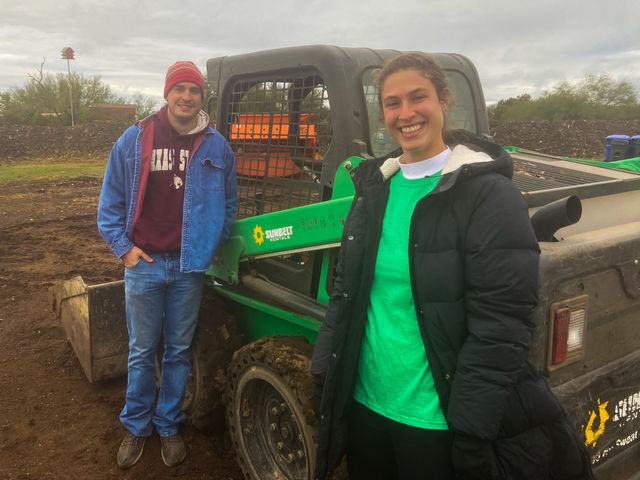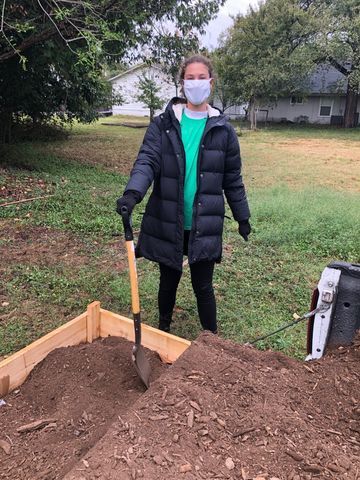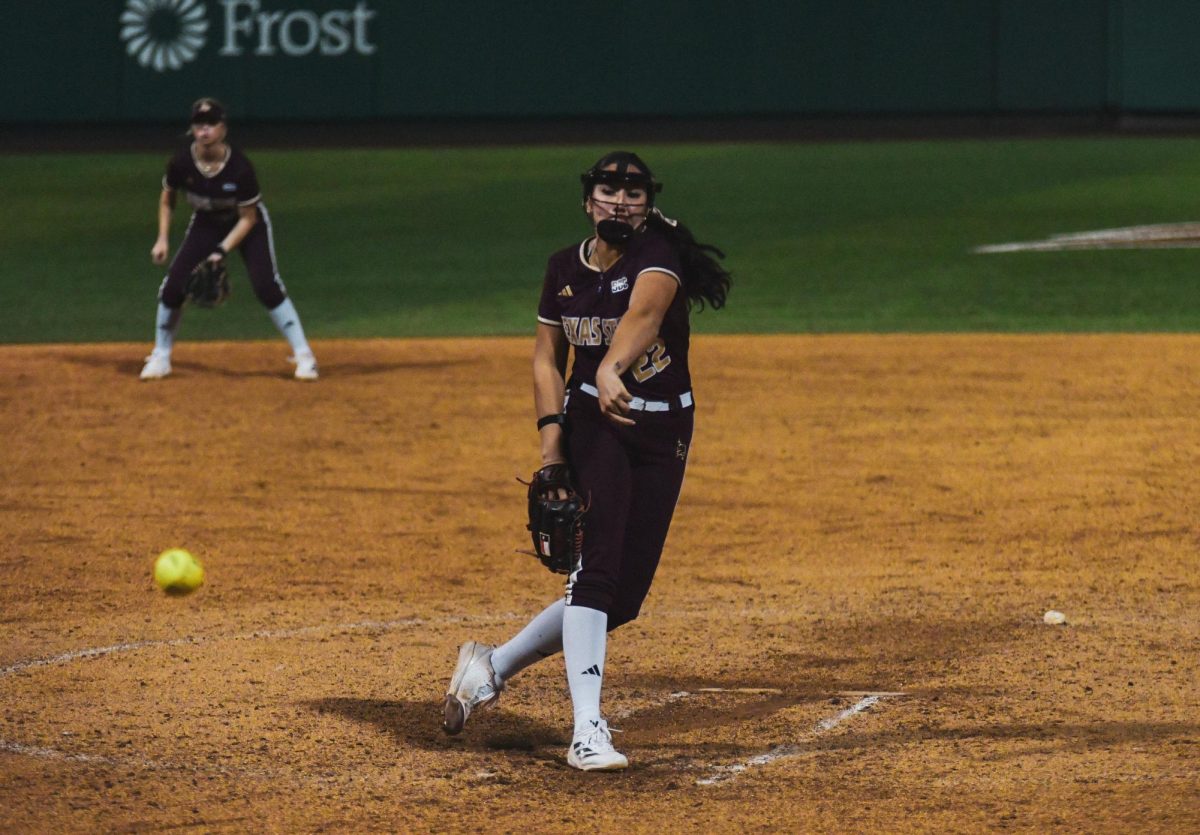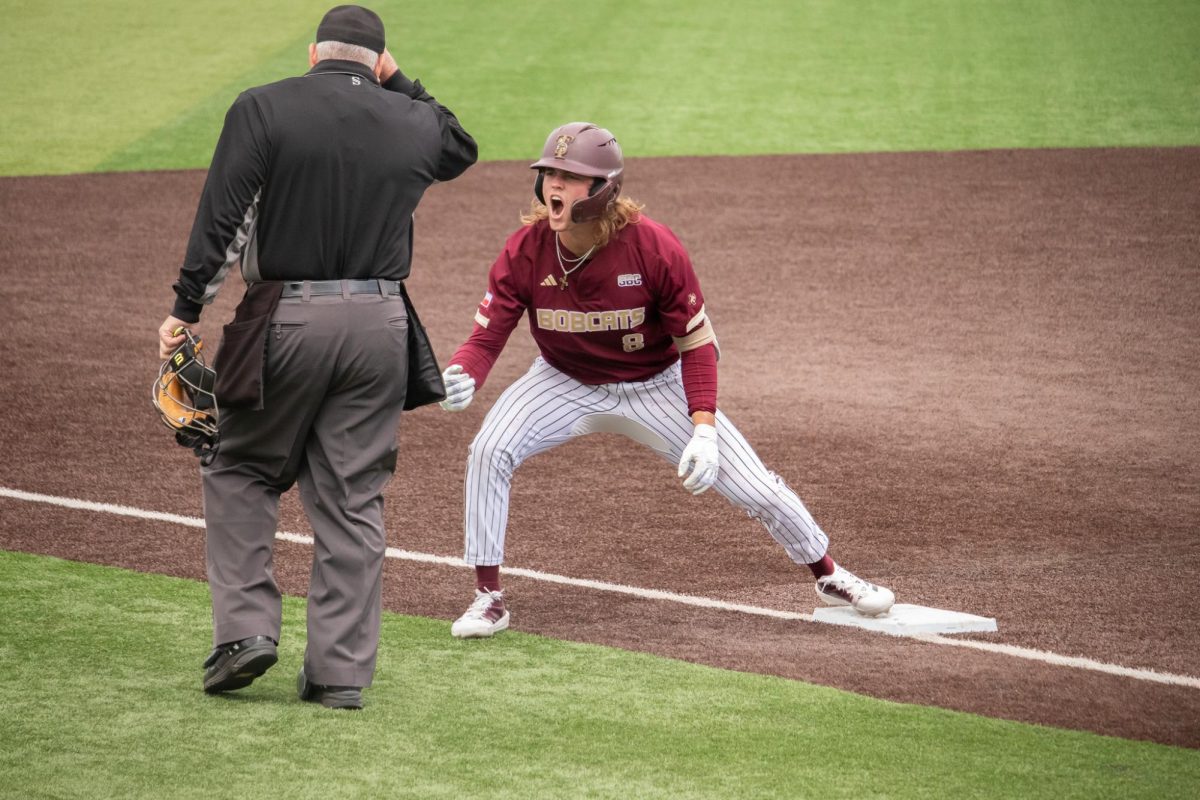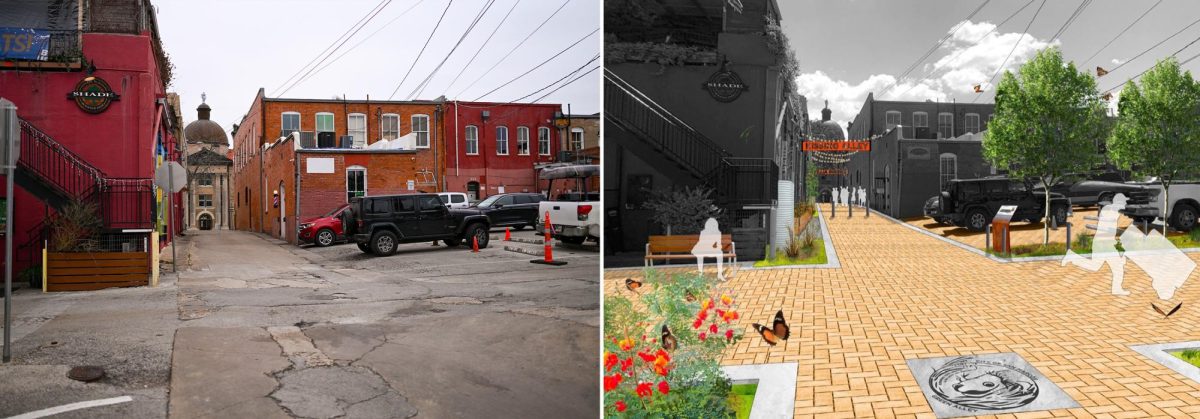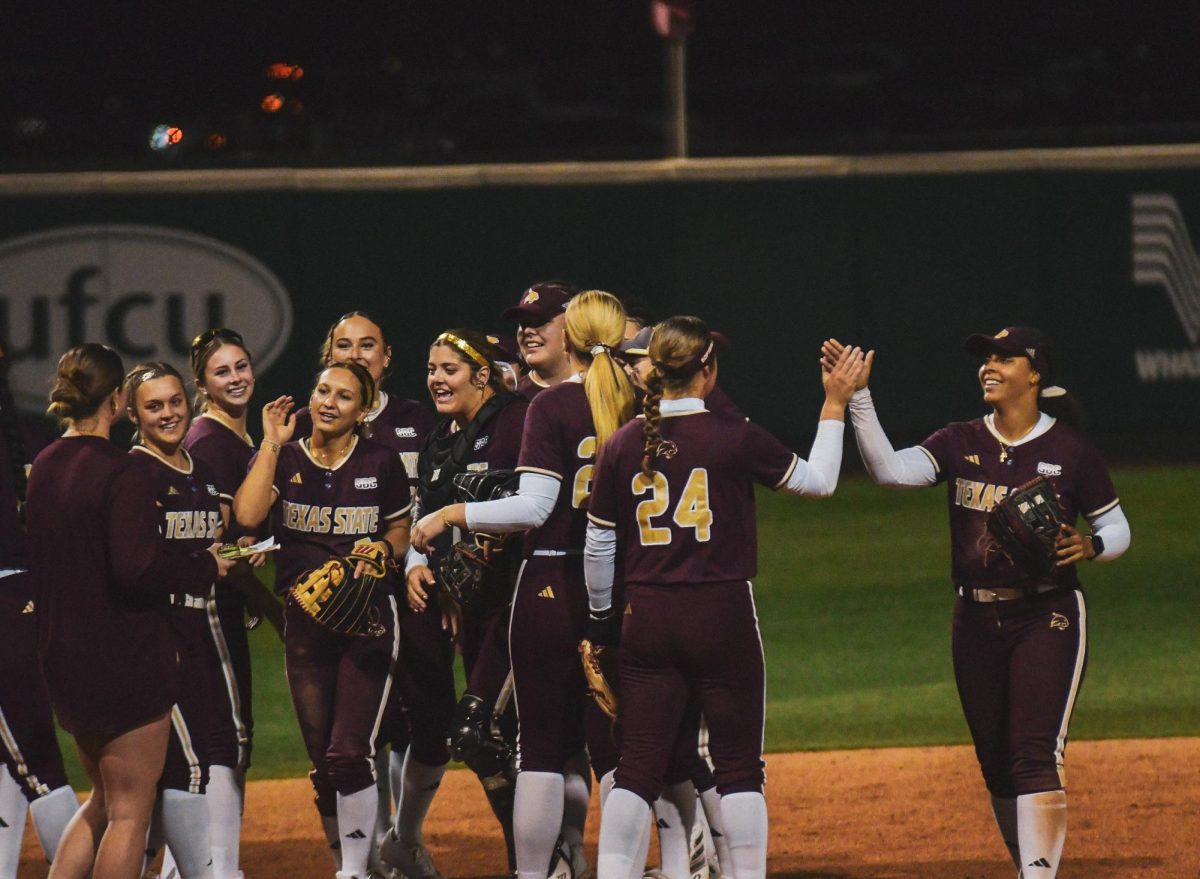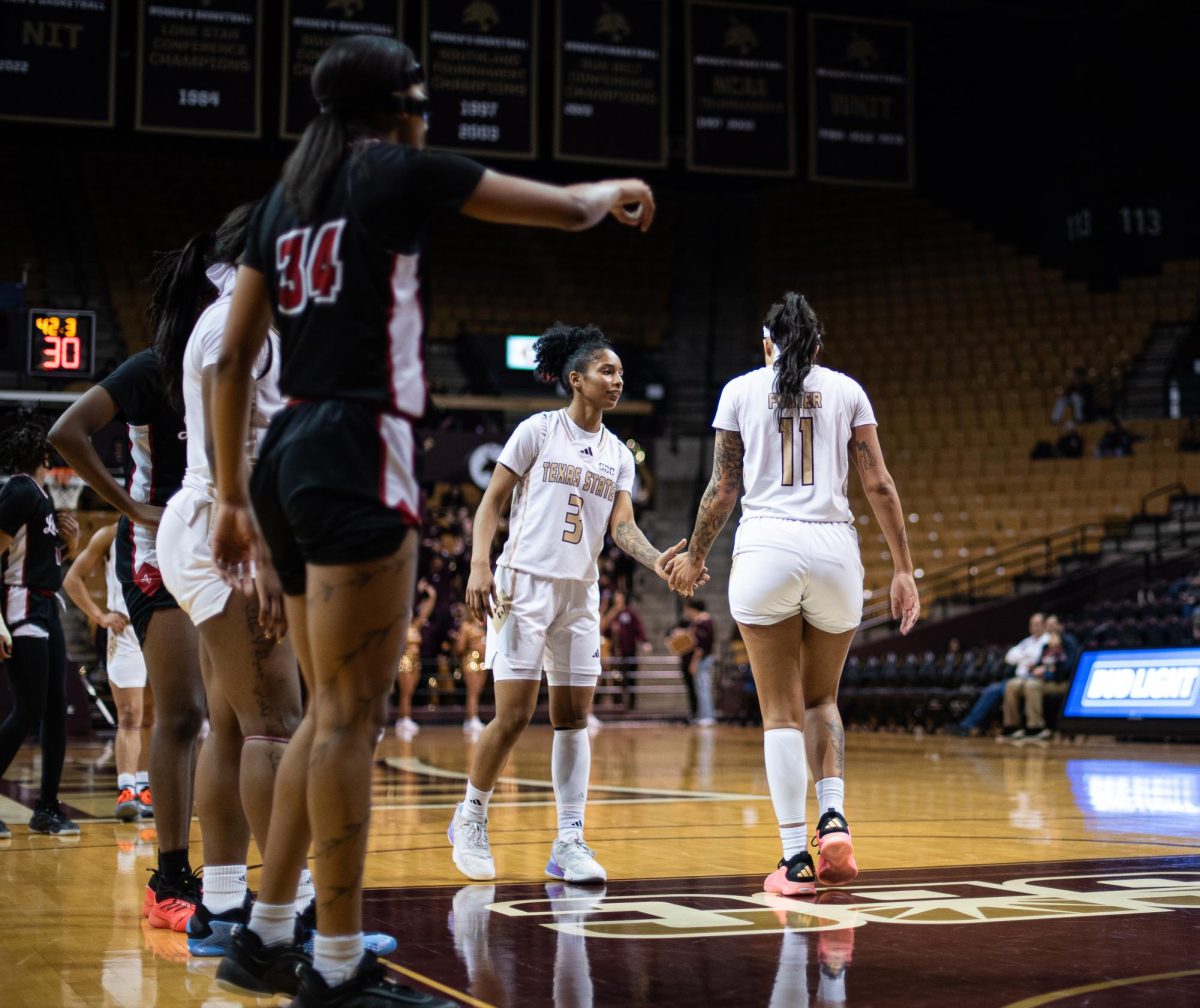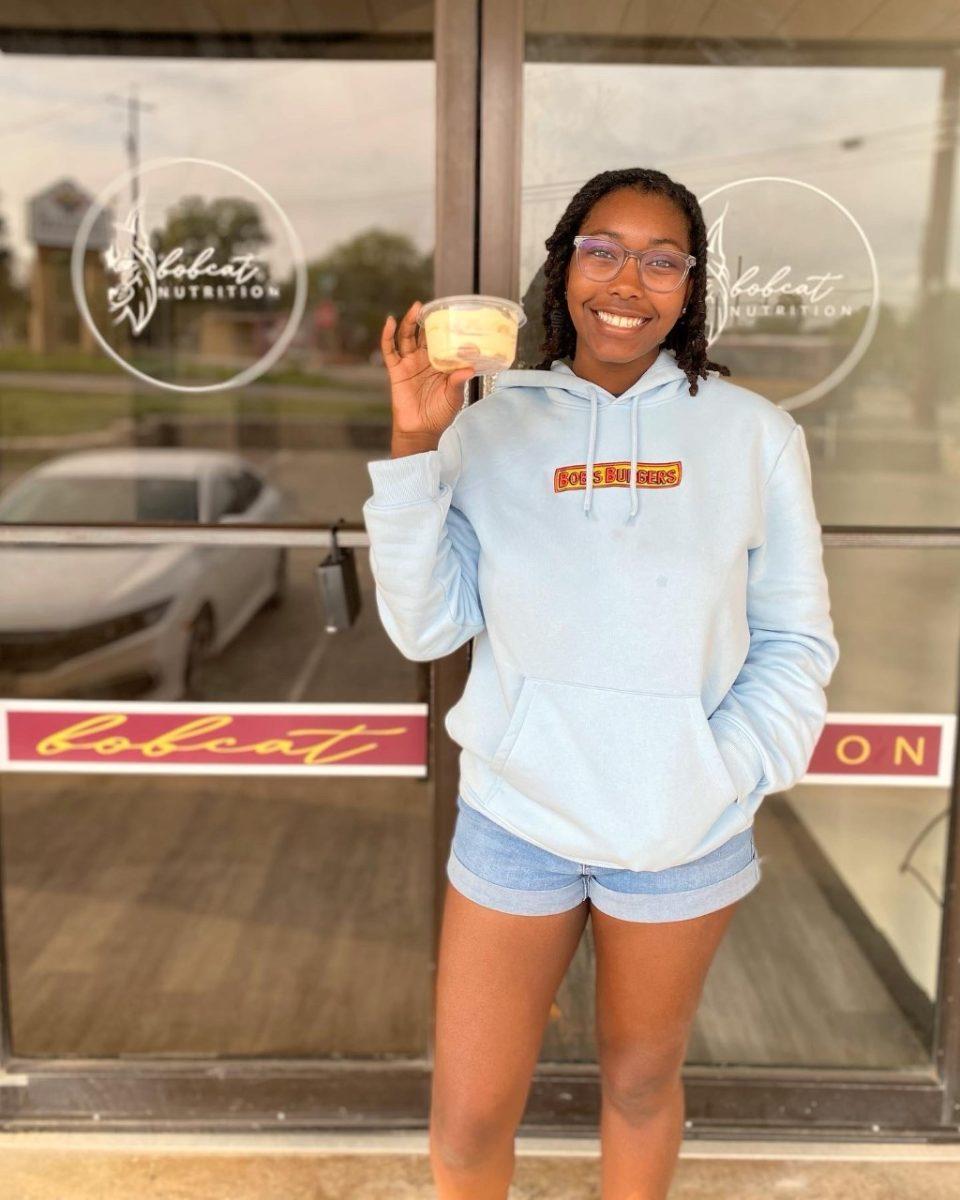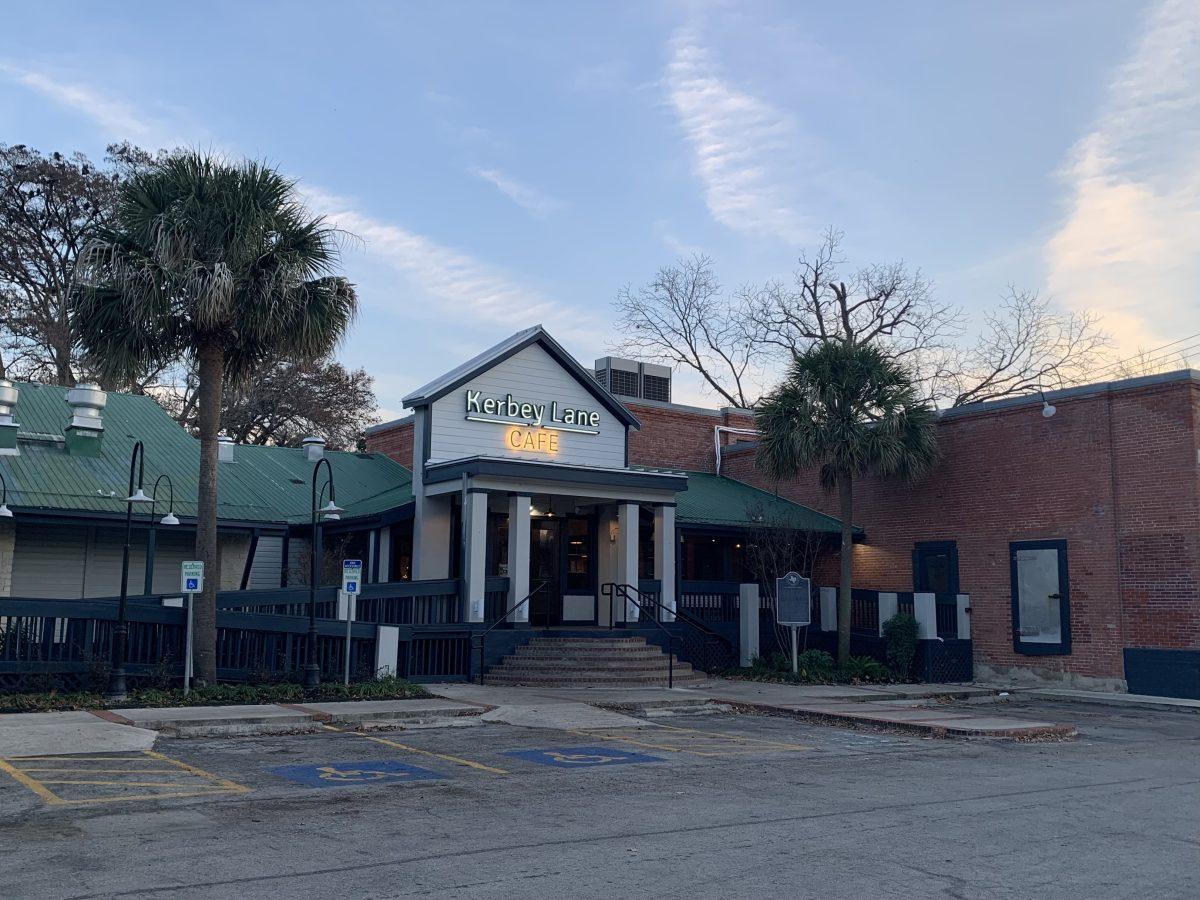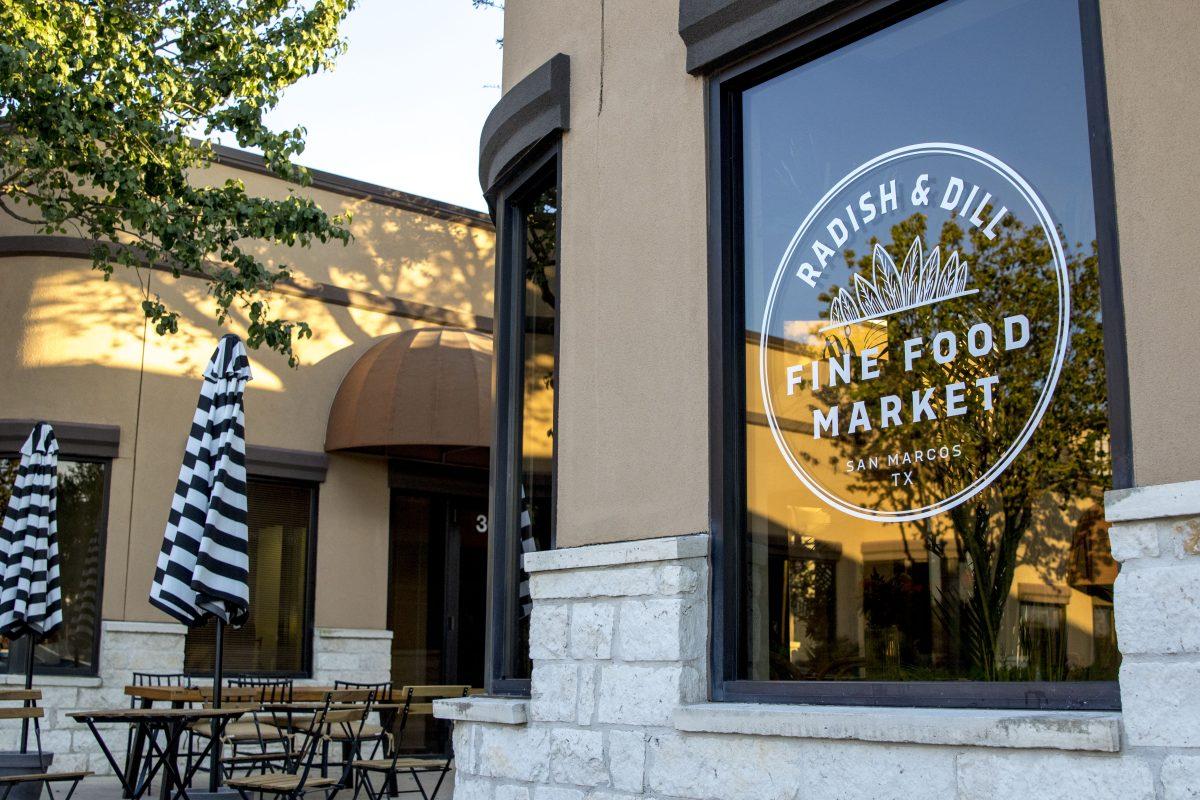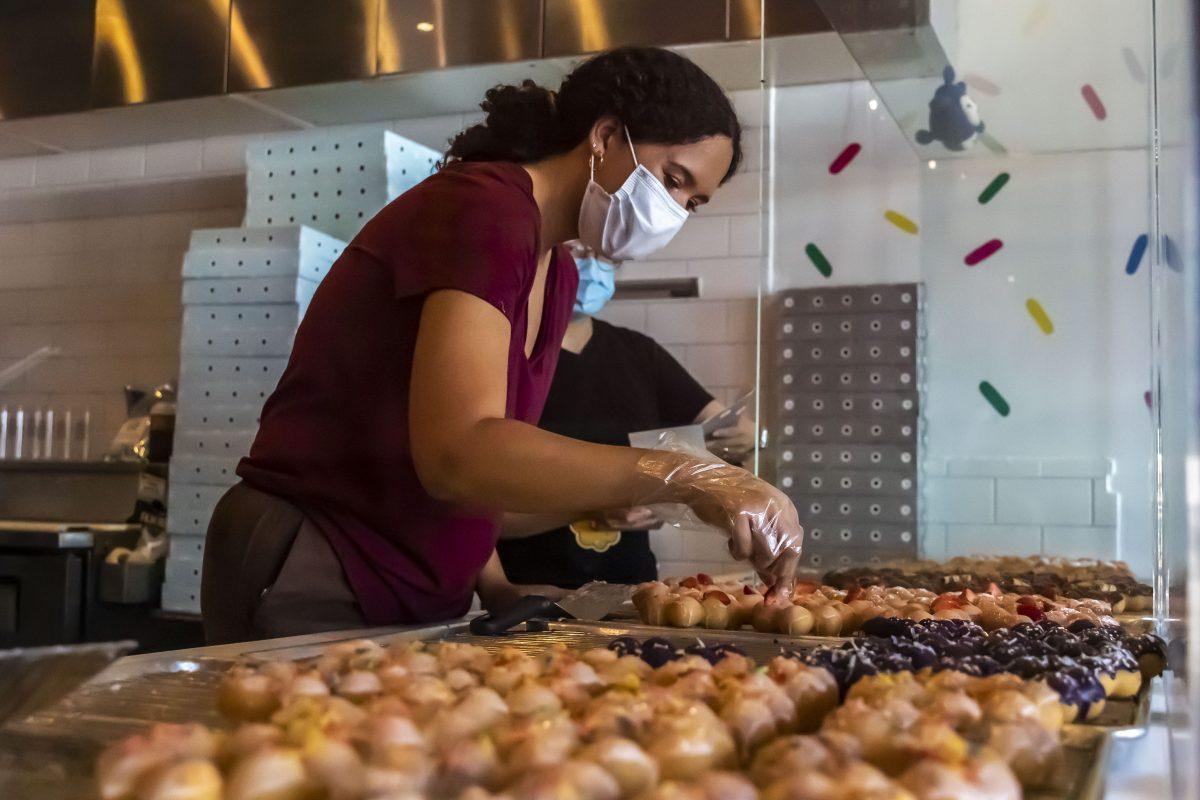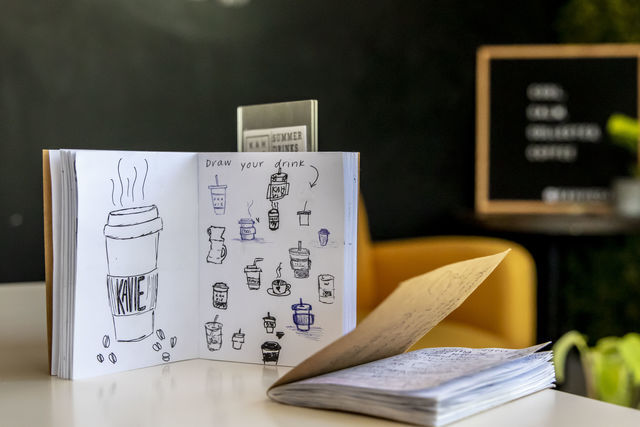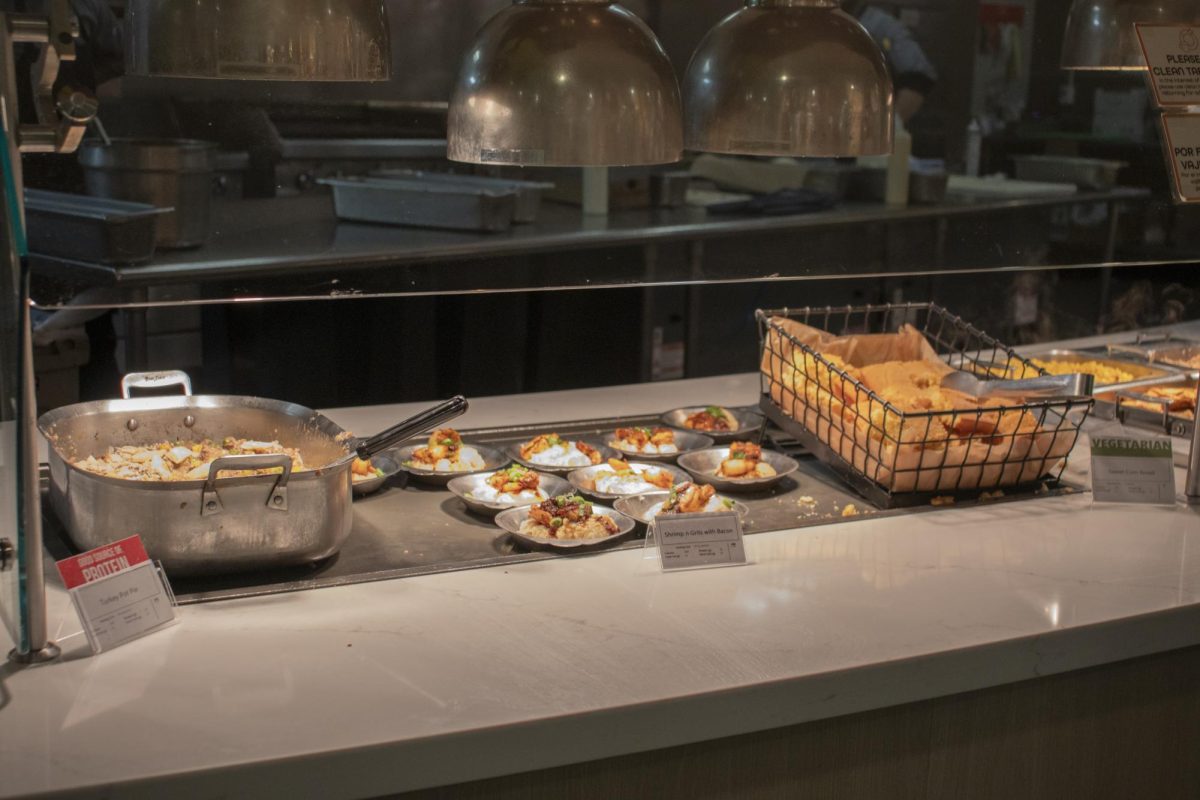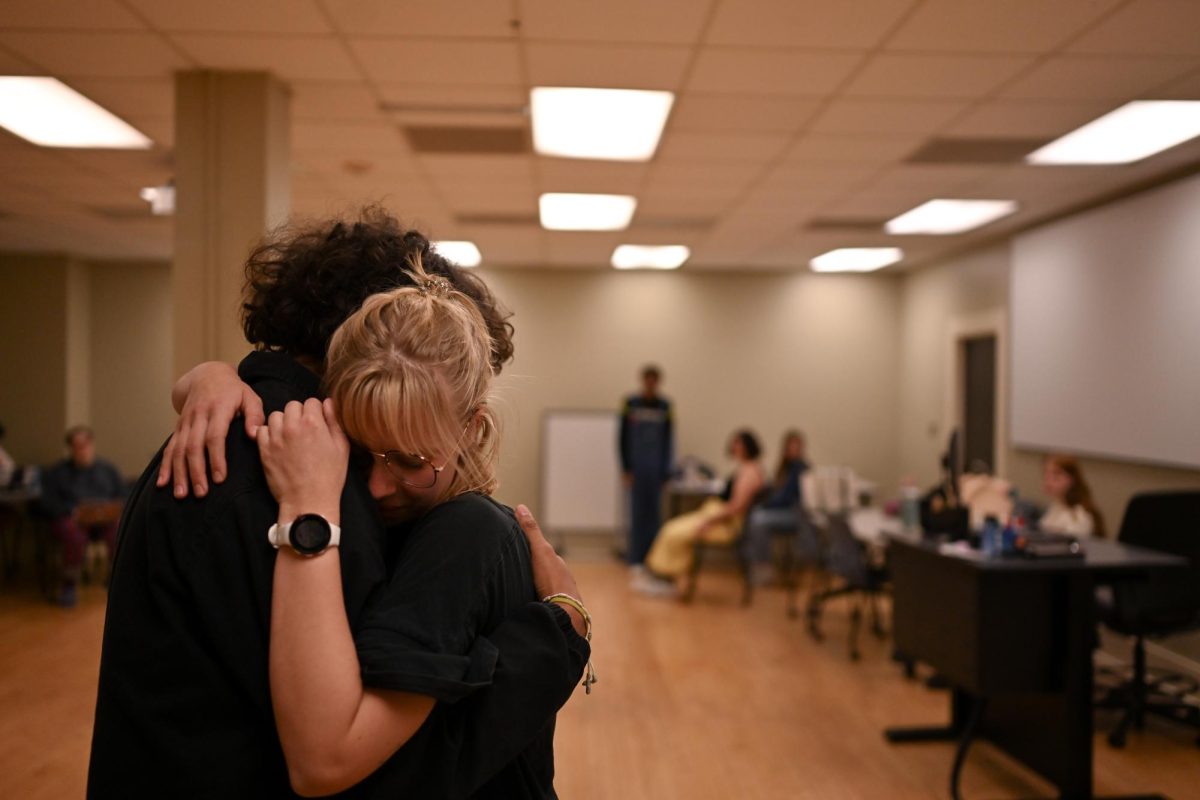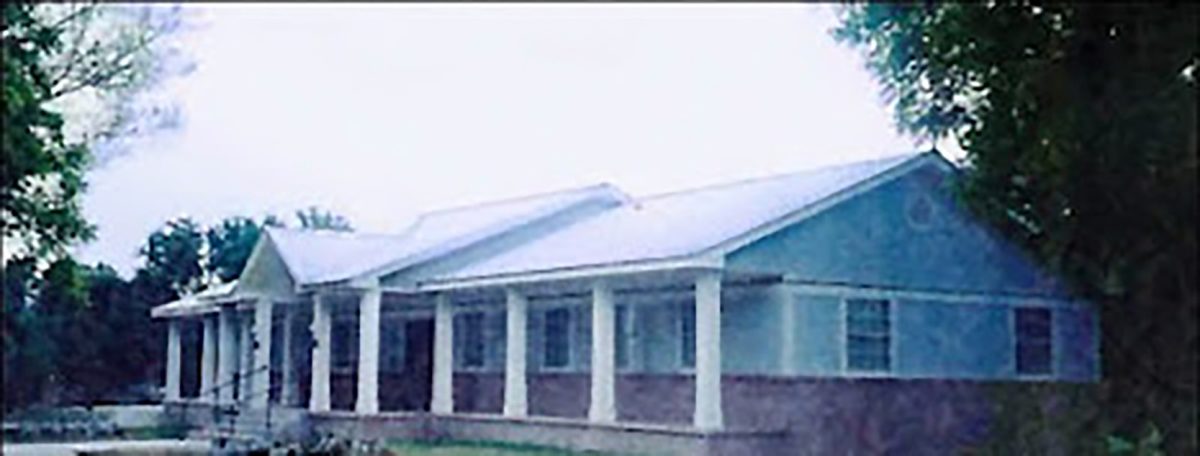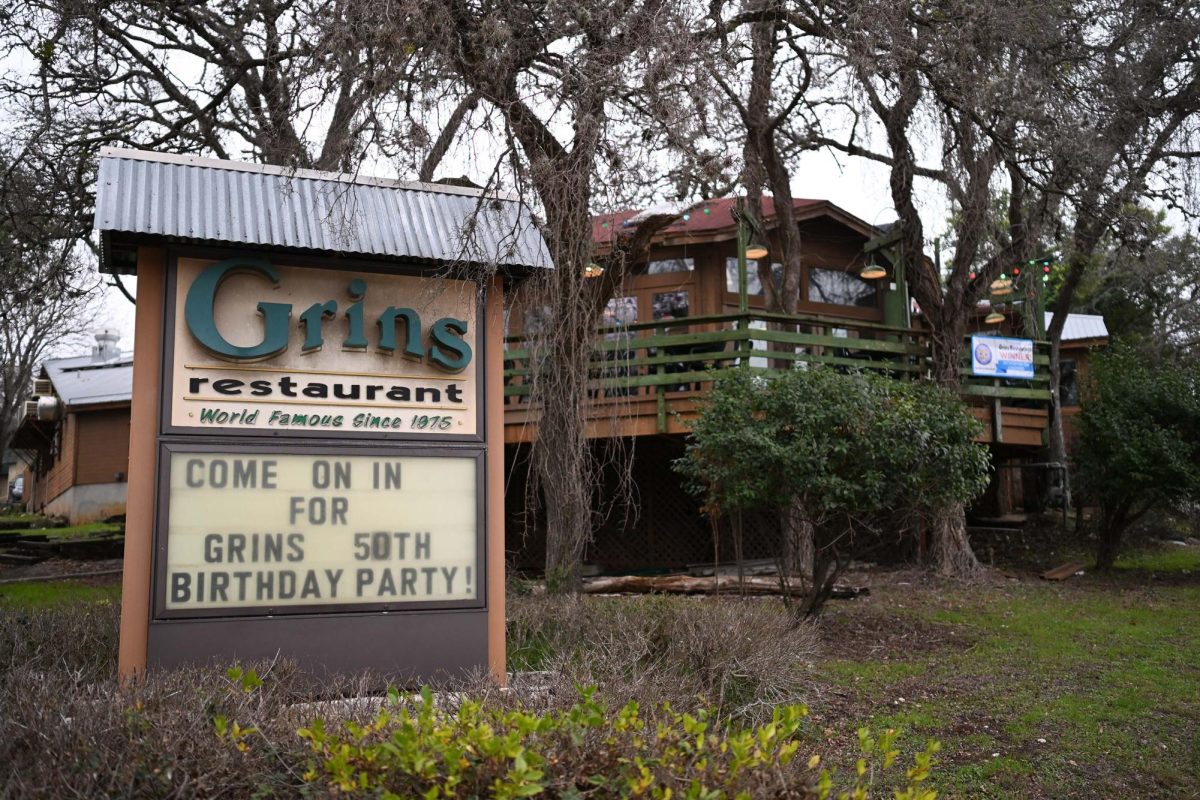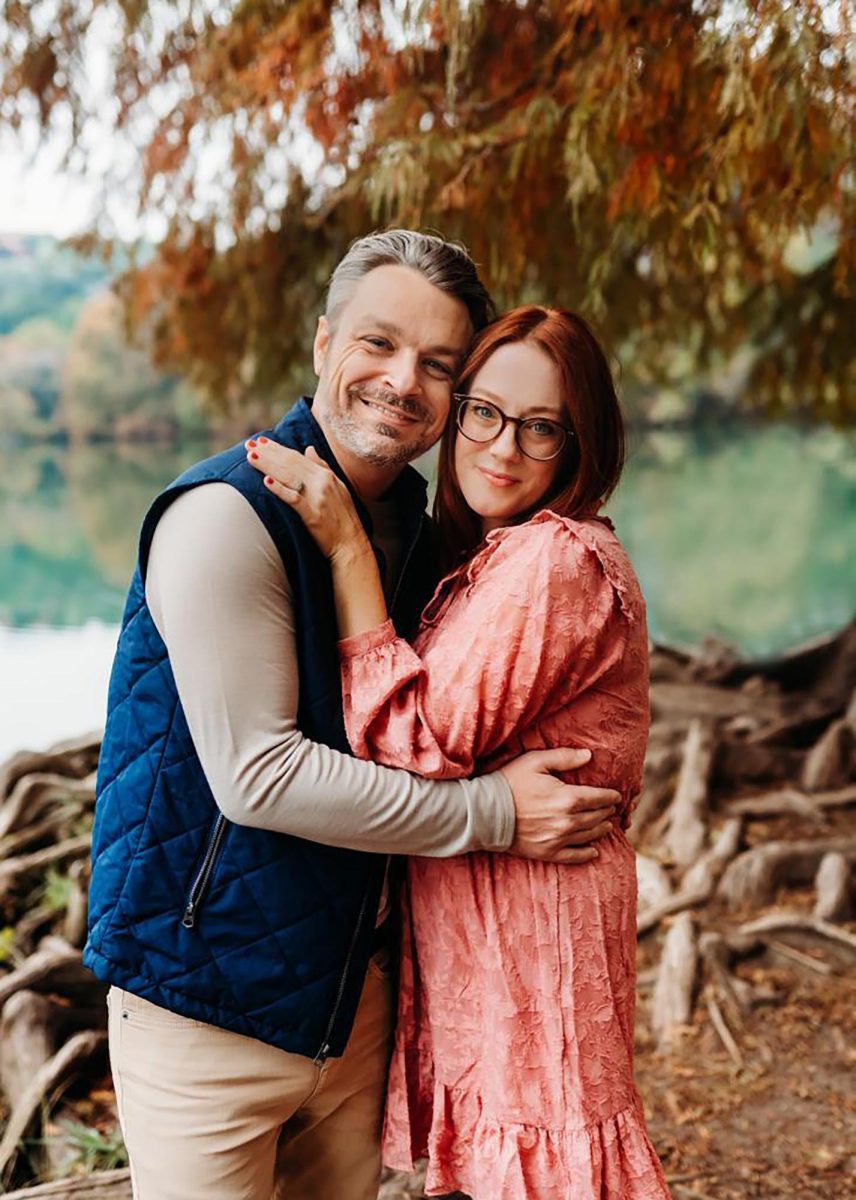Equipped with mounds of compost and members who are not afraid to get their hands dirty, Texas State’s waste management composting program, Bobcat Blend, is on a mission to create and maintain a sustainable campus community.
Established in 2009 by Dr. Tina Cade, a professor of horticulture, and a group of her students, Bobcat Blend is a faculty-managed, student-run and grant-supported research program with goals to teach the Texas State community the importance of composting.
The program began after Cade applied for a grant to fund waste-sorting bins in dining halls and a waste site to dump the food to help teach students about green, or organic, waste. Cade says organic waste from the dining halls is important to Bobcat Blend’s compost, something the environment highly benefits from.
“One of the benefits [of compost] to the environment is that we’re not throwing stuff into the landfill,” Cade said. “[Waste] not only takes up landfill space but once it decomposes in the landfill, it releases methane, and that contributes to global warming. And when you apply compost to your soil, it helps to hold the carbon, and so it helps with global warming that way.”
At the beginning of October, Bobcat Blend was burglarized and many tools important to the group’s work were stolen, including a piece of equipment used for the compost. Luckily, Sunbelt, a large equipment and tool rental facility, came to the rescue with a discounted Bobcat machine rental.
The Bobcat rental, a front loader, is used to move and mix the compost with the food waste. Without it, Cade says the students must do all the work by hand with shovels and pitchforks.
“It’s a heavy labor job, and it makes it harder to keep a crew, because not everybody wants to just dig all day, and, you know, when you’re not digging in this job, then you’re working with stinky old food that sometimes has maggots in it,“ Cade said.
With help from Sunbelt’s rental, Bobcat Blend has also lent a helping hand to the Hays County Food Bank.
Bobcat Blend has donated soil and compost to the food bank for its new planter box in which it will plant vegetables like collard greens, beets, broccoli and kale. The food grown in the box will be used in educational cooking and nutrition classes at the food bank.
Taylor Levy is the nutrition education lead at the food bank and hosts nutrition education classes. Under normal circumstances, the food bank would reach out to local community organizations, such as the housing authority, and schools would bring the cooking classes to them. However, because of the pandemic, classes have been moved online.
“We’ll use [the food grown in the planter] for the classes; we do a lot of cooking demonstrations virtually as well,” Levy said. “We make those ‘[Buzzfeed] Tasty’ videos you see on social media. We’re starting to do a lot more of those that we can show our clients like how to use the food that we provide for them in the boxes that we distribute to them.“
The food bank also received help from the Sustainable Food Center in Austin which donated the seeds to help kickstart the growth in the planter box. Levy says it is important for the food bank to reach out to other local organizations to build partnerships and support in the community rather than relying on bigger stores for supplies.
“Pretty much the backbone of non-profits is working [with] others and how we can all collaborate together to, you know, use the resources that we already have just to make our program stronger,” Levy said. “So instead of going to Home Depot and buying the soil, we’re allowing a partnership to be formed.“
Agribusiness and management junior and Bobcat Blend member Jack Traugott says he was happy to donate the compost and soil to the food bank since compost is the key to maintaining healthy soil.
“Everything, really, in life comes from the soil. So it’s very important to have healthy soil for anything that you’re doing or growing,” Traugott said. “So really, all the good nutrients that you get in minerals from your food comes from the soil, and having the compost really helps get all those micronutrients started.”
Traugott has been a member of Bobcat Blend for seven months and says he enjoys the learning experience. He believes it is a great opportunity to get involved at the university.
To learn more about the Bobcat Blend program and its award-winning compost projects, visit its website. To donate and show support or to get involved, contact Dr. Tina Cade at [email protected]. To learn more about the Hays County Food Bank and/or show support, visit its website.
Categories:
Bobcat Blend, Hays County Food Bank plant seeds of sustainability through compost education
Sarah Hernandez, Life and Arts Reporter
November 16, 2020
Taylor Levy with the Hays County Food Bank and Jack Traugott with Bobcat Blend smile in front of the Bobcat rental from Sunbelt that helped load up compost for the food bank’s new planter box.
0
Donate to The University Star
Your donation will support the student journalists of Texas State University. Your contribution will allow us to purchase equipment and cover our annual website hosting costs.
More to Discover


